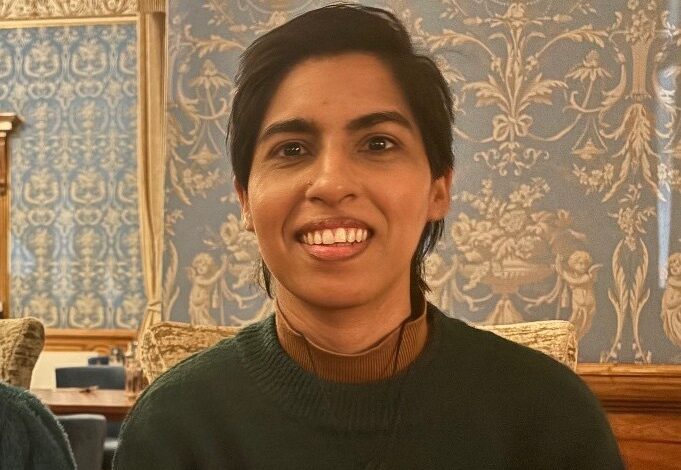Dr Veenu Gupta – A Trailblazer in Lived Experience Research and Mental Health Innovation

Veenu Gupta is a pioneering research psychologist and academic whose career blends rigorous scientific inquiry with profound personal insight into mental health. With a unique background as a former mental health nurse, an expert by experience, and a holder of a PhD in Clinical Psychology, she exemplifies how lived experience can enrich and transform the landscape of psychological research. Her work is recognised across the United Kingdom and internationally for its contribution to psychosis research, service user involvement, and the development of more inclusive mental health services.
Early Career and Professional Vision
From the very start, Veenu Gupta has been guided by a mission: to bridge the gap between academic research and the lived realities of those navigating mental health challenges. Her early professional life involved frontline work as a mental health nurse in acute admission, rehabilitation, and community mental health settings. These experiences not only honed her clinical skills but also deepened her understanding of the systemic gaps and inequalities within mental health care.
As a Support Worker for young people with learning difficulties, autism, and sensory impairments, she developed her expertise in person-centred care, communication, and advocacy. This foundation became the cornerstone of her later academic and research achievements.
Educational Excellence
Education has been a driving force in shaping Veenu Gupta’s career. Her academic path demonstrates both breadth and depth of expertise:
-
PhD in Clinical Psychology – University of Liverpool
Her doctoral research explored the identities of professionals with lived experience roles, combining theoretical frameworks such as Social Identity Theory, Intersectionality, and Liminality. She employed qualitative, quantitative, and mixed-methods approaches to uncover new understandings of professional identity in mental health research. -
MSc in Psychological Research Methods – University of Leicester (Distinction)
This degree equipped her with advanced research skills, statistical analysis capabilities, and methodological expertise. -
PGDip in Mental Health Nursing – City, University of London/St George’s (Merit)
Her nursing training gave her a clinical foundation that would later inform her applied research. -
BSc in Psychology – Lancaster University (Upper Second Class)
The starting point of her academic journey, where she first engaged in psychological research and developed an interest in mental health. -
Additional qualifications include a Level 3 Certificate in Person-Centred Counselling, reflecting her commitment to therapeutic and empathetic approaches.
Durham University – Current Role and Research Impact
In February 2024, Veenu Gupta joined Durham University as an Assistant Professor in Lived Experience Research within the Institute for Medical Humanities. Her role is funded by the Wellcome Trust and centres on integrating lived experience into high-impact mental health research.
Her current projects include:
-
Recovery College Collective (ReCoCo) – Investigating how ReCoCo influences wellbeing, identity, and recovery, with a focus on health inequalities and epistemic injustice.
-
SUNRISE Study – In collaboration with the McPin Foundation and Dr Alison Faulkner, this research examines how subjective mental health experiences can be better integrated into academic and clinical contexts.
-
PUMA Trial Development Platform – Designing multi-arm, multi-stage clinical trials for novel psychosis treatments, with Veenu Gupta co-chairing the outcome measures working group.
-
Prevent Diabetes Study – Exploring the metabolic side effects of antipsychotics and statins.
-
SAFE PATHS – Understanding the experiences of South Asian communities with psychosis and their pathways to care.
Through these initiatives, she continues to shape policies and practices that place the voices of patients and carers at the heart of decision-making.
The Royal College of Psychiatrists – Service User Leadership
Since 2018, Veenu Gupta has served as a Service User Advisor for the National Clinical Audit of Psychosis (NCAP) under the Royal College of Psychiatrists. Her role involves:
-
Representing service user perspectives in national audit meetings.
-
Co-producing surveys distributed across NHS England and NHS Wales.
-
Reviewing and improving patient-facing materials.
-
Contributing to peer-reviewed publications in leading psychiatric journals.
-
Delivering presentations at conferences and webinars on topics such as treatment uptake and early intervention services.
Her work here has had tangible influence, ensuring that the audit reflects the priorities and needs of those with lived experience of psychosis.
The Manchester Metropolitan University – Postdoctoral Research
Before joining Durham University, Veenu Gupta worked as a Postdoctoral Research Associate on the NIHR-funded EXTEND Early Intervention in Psychosis programme. This role allowed her to merge her academic expertise with her lived experience, providing unique perspectives in both qualitative and quantitative analysis. She also chaired the service user and carer group, ensuring that the study maintained strong patient involvement.
University of Liverpool – Doctoral Achievements
Her PhD research at the University of Liverpool has been widely recognised and published. It stands as a model of co-produced research, integrating the insights of Experts by Experience, carers, clinicians, and trainee psychologists. Her findings have been adopted by clinical psychology programmes across the UK to enhance professional development and supervision for lived experience researchers.
The British Psychological Society – Advocacy and Education
As an Expert by Experience with the British Psychological Society, Veenu Gupta contributed to shaping the training of future clinical psychologists. She:
-
Took part in candidate selection and assessment for doctoral programmes.
-
Designed and delivered teaching sessions based on lived experience.
-
Advocated for diversity and inclusion in clinical psychology training.
-
Presented at national conferences, influencing educators and policymakers.
Research and Academic Contributions
Veenu Gupta’s publication record spans topics such as:
-
Health inequalities in psychosis treatment.
-
Patient-reported predictors of positive outcomes.
-
Identity challenges for lived experience researchers.
-
Supervision models for integrating personal and professional expertise.
Her systematic narrative review on lived experience roles and her Q methodology study on supervision needs have both been widely cited and praised for their practical relevance.
Honours and Awards
Her outstanding contributions have been recognised through numerous accolades, including:
-
HQIP Clinical Audit Heroes Award (2024) – For patient and public involvement in the NCAP State of the Nation Report.
-
Mental Health Mission Early Psychosis Research Artwork Commission (2024) – Reflecting her creative as well as academic impact.
-
The Teal Tiger Cover Art Commission (2020) – Commissioned by the Royal College of Psychiatrists.
-
Philip Watson Award for Visual Arts and Design (2008) – For exceptional achievement in art.
-
Other creative and academic recognitions from early in her career.
A Unique Blend of Skills and Perspectives
What sets Veenu Gupta apart is the fusion of her personal journey with her professional skill set. She is equally at home discussing psychometric development, conducting factor analysis, or facilitating a focus group with service users. Her career embodies the principle that lived experience is not just valuable but essential to producing research that truly matters.
Future Directions
Looking ahead, Veenu Gupta is poised to continue influencing mental health policy, research methodology, and education. Her work at Durham University and beyond is laying the groundwork for more inclusive, compassionate, and evidence-based mental health systems. As her research continues to expand, it is likely to shape not just academic discourse but also the everyday experiences of those accessing mental health services.
Conclusion
Veenu Gupta stands as an exemplar of how lived experience can powerfully inform academic research and clinical practice. Her journey—from mental health nurse to Assistant Professor, from frontline care to national policy influence—demonstrates the transformative potential of integrating personal insight with professional expertise. In a field often criticised for being too far removed from real-life experiences, her voice and vision are both timely and essential.
With her ongoing projects, influential publications, and unwavering dedication to service user involvement, Veenu Gupta continues to pave the way for a more inclusive and effective mental health research landscape in the UK and beyond.


